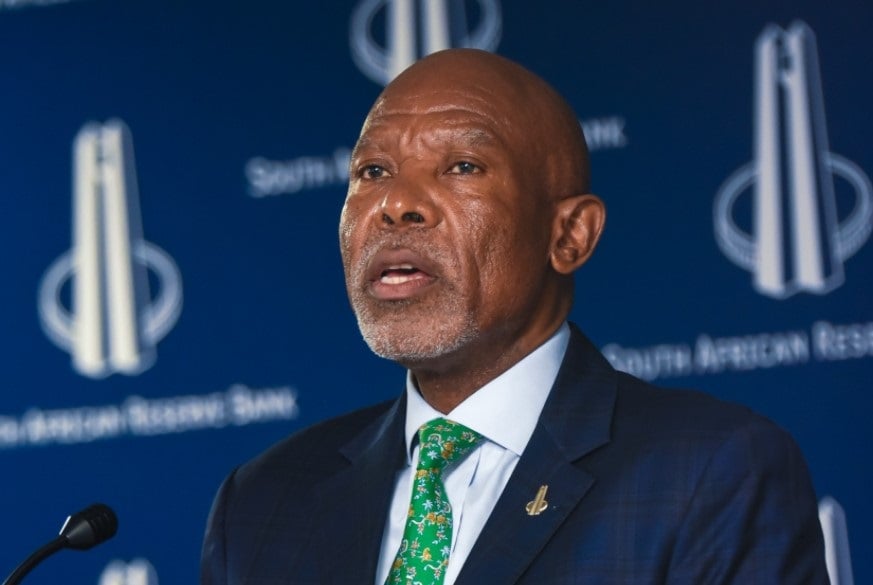
Lesetja Kganyago, governor of the SA Reserve Bank, said the confidence regarding global economic developments has largely evaporated. Photo: SA Reserve Bank
South Africa’s central bank cautioned that borrowing costs around the world are likely to remain higher for longer as it grows doubtful about the inflation outlook amid US President Donald Trump’s aggressive trade tariffs.
“Confidence around the medium-term outlook has reduced significantly due to heightened global trade tensions and elevated domestic uncertainties,” the central bank said in its semi-annual Monetary Policy Review published Tuesday in Johannesburg. “Although policy rates are expected to decline further in major economies, the new risks that have emerged suggest they will remain higher for longer.”
Since Trump’s return to the White House in January, he has forged ahead with an aggressive tariff regime. On April 2 he announced reciprocal tariffs on US trading partners before postponing them for 90 days on most nations while keeping a 10% levy.
“The confidence regarding global economic developments we projected in October, has largely evaporated,” Reserve Bank Governor Lesetja Kganyago told an audience during a presentation of the review. Waning confidence has been largely replaced by “high economic uncertainty here at home,” he said.
“The inflation and inflation expectation is better today; we lowered borrowing costs and this will support economic activity. However, risks to domestic inflation and growth have risen markedly since the start of the year,” Kganyago said.
The South African Reserve Bank kept the key interest rate unchanged at 7.5% last month after three successive 25 basis point cuts because of the extreme levels of uncertainty as trade tensions escalate.
“With the recent softening in inflation, the SARB has cut interest rates by a cumulative 75 basis points since September 2024, reducing the degree of policy restrictiveness,” the central bank said in a statement on X. “Given the upside risks over the medium-term horizon, the current monetary policy stance is deemed appropriate.”
Officials noted that for the first time in several years, the risk that disinflation at a global level will stall, if not reverse, has increased sharply, causing market views of short-term rate expectations to shift higher.
While inflation in South Africa remains largely contained and is expected to stay in line with the 4.5% midpoint of the central bank’s target range, uncertainty around this outlook has risen since the beginning of the year.
The central bank said this is due to heightened geopolitical and trade tensions, as well as domestic political strain within the country’s governing coalition over plans to raise value-added taxes.
The central bank estimates that a proposed 0.5 percentage point VAT increase on May 1, to be followed by another 0.5 percentage point increase next year, may add 0.2 percentage points to headline inflation annually.


